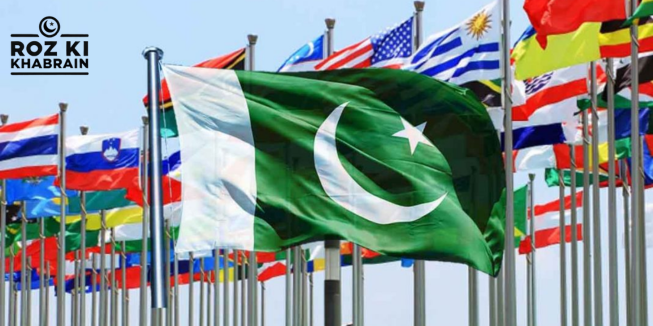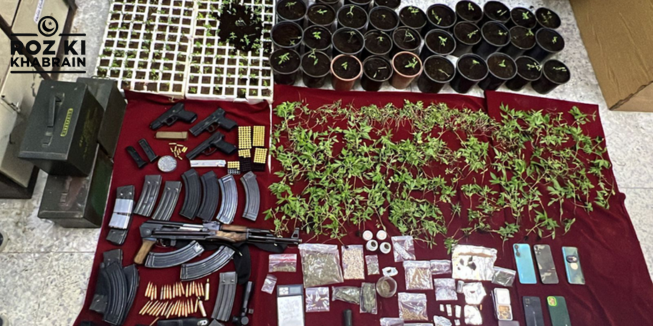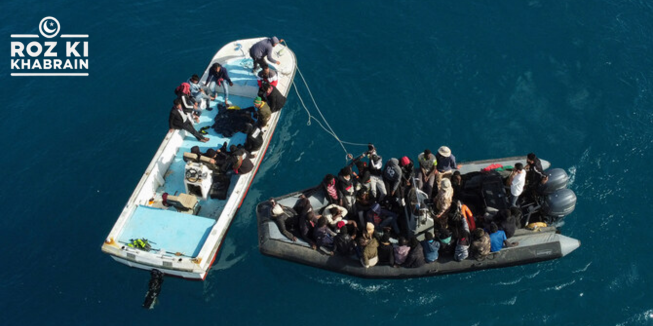ISLAMABAD:
On December 24, Pakistani fighter jets conducted strikes inside Afghanistan, marking the culmination of a challenging year for Pakistan on both security and foreign policy fronts. The strikes, though not officially acknowledged, underscored the complexities of Pakistan’s relationship with Afghanistan.
Pakistan had little choice but to take decisive action after TTP-sponsored terrorist attacks continued to target security forces in Khyber-Pakhtunkhwa (K-P). Just three days before the strikes, TTP militants attacked a security checkpoint in South Waziristan, claiming the lives of 16 Pakistani soldiers. This incident became the tipping point, prompting Pakistan to target TTP hideouts in Afghanistan.
The strikes coincided with a high-level visit to Kabul by Ambassador Muhammad Sadiq, Pakistan’s special envoy for Afghanistan, aimed at finding a diplomatic solution to the escalating tensions. Despite these efforts, 2024 witnessed a sharp rise in terrorist attacks in Pakistan.
Data from the Pakistan Institute for Conflict Studies revealed that terrorist-related fatalities in 2024 exceeded 1,000, with 1,082 deaths and 856 attacks recorded in the first 11 months alone—an alarming increase compared to 645 attacks in 2023.
November proved particularly deadly, with 245 casualties, including 68 security personnel, 127 terrorists, and 50 civilians. Khyber-Pakhtunkhwa bore the brunt, experiencing 50 attacks that resulted in 71 deaths and 85 injuries. The Kurram district also faced one of the deadliest tribal clashes in recent history, claiming over 120 lives. Balochistan saw a surge in violence as well, prompting civil and military authorities to launch a comprehensive operation in the region.
A Year of Foreign Policy Challenges
While security issues loomed large, foreign policy posed additional hurdles for Pakistan in 2024. Relations with Afghanistan remained strained, with no breakthroughs in sight. Similarly, hopes of improved ties with India following the February elections never materialized.
Even Pakistan’s historically strong relationship with China faced challenges. At least seven Chinese nationals were killed in two separate terrorist attacks in 2024, including the deaths of five Chinese engineers in Besham on March 26 and two Chinese citizens in Karachi on October 6. These incidents prompted China to express serious concerns and caution Pakistan about security improvements being a prerequisite for progress in the second phase of the China-Pakistan Economic Corridor (CPEC).
Tensions further escalated when the Chinese ambassador publicly criticized Deputy Prime Minister Ishaq Dar during a forum in Islamabad, prompting a rare rebuttal from Pakistan’s Foreign Office.
Adding to Pakistan’s woes, the Biden Administration ramped up pressure over the country’s long-range ballistic missile program, imposing sanctions on several Chinese and Pakistani entities linked to the program. A senior U.S. official described Pakistan’s missile capabilities as an “emerging threat” to the United States, further straining relations.
Diplomatic Engagement Amid Challenges
Despite these obstacles, Pakistan remained active on the diplomatic front in 2024. Islamabad hosted a landmark summit of the Shanghai Cooperation Organization (SCO) in October, with leaders from China, Russia, and India in attendance. The Foreign Office also highlighted high-level visits from numerous countries, including Azerbaijan, Belarus, Saudi Arabia, Türkiye, and the United Kingdom.
These exchanges helped Pakistan foster important understandings with its global partners, even as the year brought significant geopolitical shifts in regions like Africa, South Asia, and the Middle East. With Donald Trump preparing to assume the U.S. presidency in 2025, Pakistan braces for another year of potential challenges and opportunities.




